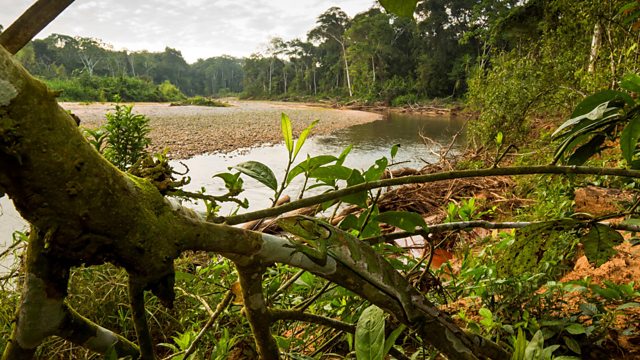
Global Protected Land Under Pressure
Protecting land under pressure; Myanmar drones; Bitcoin energy; Ebola outbreak; Alzheimer’s disease; evolution of music.
Threat to conservation
A third of protected nature reserves around the world are under threat from intense human activities like road building, grazing of animals and urbanization, according to a new study. Professor James Watson from the World Conservation Society explains to Roland Pease how only 10% of lands were completely free of human activity.
Drones reforesting Myanmar
Irina Fedorenko, Co-Founder of BioCarbon Engineering in Oxford, has been using drone technology to reforest the coastal areas of Myanmar. She tells Gareth Mitchell how they can restore natural ecosystems in a fraction of the time it takes traditional methods.
Bitcoin energy
Alex de Vries from accountancy group PwC explains how Bitcoin works, and how there is a limit to Bitcoin production. He speaks to Roland Pease about how his calculations suggest that Bitcoin electricity usage will soon be almost the same as the consumption of Ireland.
Ebola outbreak in DR Congo
The Ebola outbreak in DR Congo has spread from the countryside into a city, prompting fears that the disease will be increasingly hard to control. Health Minister Oly Ilunga Kalenga confirmed a case in Mbandaka, a city of a million about 130km (80 miles) from where the first cases were confirmed. Earlier this week, Claudia Hammond spoke to Helen Branswell from the US health website STAT about the action needed to prevent the spread of the disease.
Alzheimer's disease
We hear about efforts in Italy to help diagnose dementia earlier using computer algorithms to rapidly analyse thousands of brain scans for markers of the disease before symptoms become apparent. Agnese Abrusci reports from Bari in Italy.
Evolution of music
How have the trends in music changed over recent years? Natalia Komarova has tapped into databases online to discover what characteristics make a song ‘successful’. Her study, which uses machine learning to try to predict the success of songs, shows that the ‘happiness’ of songs is slowly declining, while the ‘danceability’ has increased. Roland Pease spoke to Dr Natalia Komarova from the University of California, Irvine.
Picture: Madidi National Park, Bolivia. Credit: Rob Wallace
The Science Hour was presented by Marnie Chesterton with comments from ���˿��� Science reporter Katie Silver.
Producer: Katy Takatsuki
Last on
More episodes
Previous
Next
Broadcast
- Sun 20 May 2018 09:06GMT���˿��� World Service Americas and the Caribbean
Podcast
-
![]()
Unexpected Elements
The news you know, the science you don't

